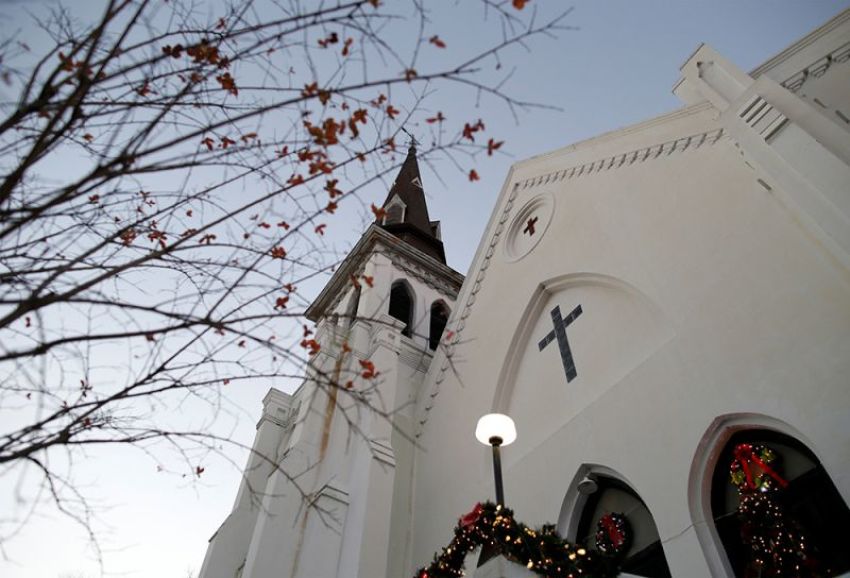Investigators find ‘no evidence’ Emanuel AME Church mishandled donations for massacre victims

Authorities have closed an investigation into allegations that Emanuel African Methodist Episcopal Church mishandled millions of dollars in donations given to them after nine of their members were killed in a mass shooting, clearing the church of wrongdoing.
The South Carolina Law Enforcement Division recently opened an investigation into claims by a former employee that Emanuel AME was mishandling donations given to the church following the 2015 mass shooting by white supremacist Dylann Roof.
Tommy Crosby, spokesman for the state Law Enforcement Division, told CNN in a story published Monday that investigators “completed their review” and found “no evidence” of financial misconduct.
Emanuel AME Pastor Eric Manning stated that his church “has always handled donations in a way that they were intended” and thanked “SLED for their attention to this issue.”
“I am prayerful that this will continue to aid in the healing process by all who were directly and indirectly impacted by the horrific event of June 17, 2015,” he told CNN.
Last month, The Post and Courier reported that SLED had opened an investigation into allegations that the church was mishandling donations made since the 2015 massacre.
Althea Latham, a former secretary for the church who was let go two months after the massacre, claimed that she was fired when she questioned how the donations were being used.
For their part, the church denied firing Latham, but rather said that she was released after her contract with them was allowed to expire.
The church had reported receiving approximately $3.3 million in donations following the tragedy, with $1.5 million of that being divided among the families of the victims, as well as massacre survivor Polly Sheppard, according to the Post and Courier.
In June, a documentary about the mass shooting at the church produced by actress Viola Davis and NBA star Stephen Curry, titled “Emanuel,” was released to theaters.
“Emanuel compellingly weaves the history of race relations in Charleston, the significance and impact of Mother Emanuel Church, and the hope that somehow emerges in the aftermath,” noted the film’s official synopsis.
“Featuring intimate interviews with survivors and family members, it is a poignant story of justice and faith, love and hate and examines the healing power of forgiveness.”



























